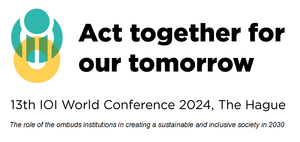Victoria must ensure people held in places of detention such as prisons and youth justice centres are treated in a humane and dignified fashion after the Australian Government ratifies an important United Nations treaty.
Victorian Ombudsman Deborah Glass today announced an investigation which will consider the practical changes needed in Victoria to implement the UN’s Optional Protocol to the Convention Against Torture and Other Cruel, Inhuman or Degrading Treatment or Punishment (OPCAT).
OPCAT aims to prevent abuses by opening places of detention to regular independent visits by a UN committee and designated state bodies known as National Preventative Mechanisms. The investigation will scope the number and type of places of detention in Victoria and how they are monitored. It will also feature a pilot inspection of a closed facility conducted to OPCAT standards where possible.
“OPCAT is the international standard for visiting closed facilities to prevent human rights abuses. Victoria has the opportunity to act as a pathfinder as Australia begins the process of ensuring compliance with this key plank of the human rights framework.
“The Victorian Ombudsman has a known history of visiting and reporting on prisons and youth justice facilities in this state, as well as investigating compatibility of state agencies’ actions with the rights set out in the Victorian Human Rights Charter. OPCAT is a vital but complex tool, and it is crucial that we get the implementation right.
“I am undertaking this investigation in order to help all parties involved in OPCAT gain an understanding of where the challenges to Victorian implementation of the protocol lie,” said Ms Glass.
The Australian Government will ratify OPCAT by December 2017 and fund the Commonwealth Ombudsman to coordinate a network of Australian inspectorates.
OPCAT inspections differ from previous Ombudsman’s visits to and investigations of closed facilities such as prisons and youth justice centres.
Instead of investigating past actions, OPCAT compliant inspections focus on prevention of human rights abuses by identifying risk factors and protective safeguards. Inspections also involve interviews with detainees and the assessment of records, in addition to inspections of conditions.
Source: Victorian Ombudsman, Australia

